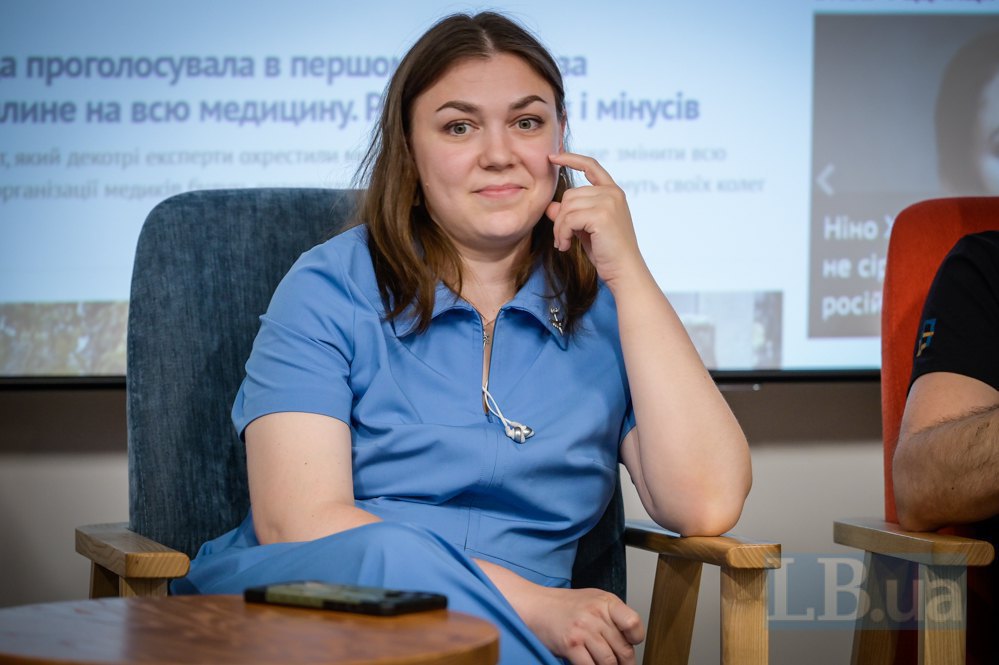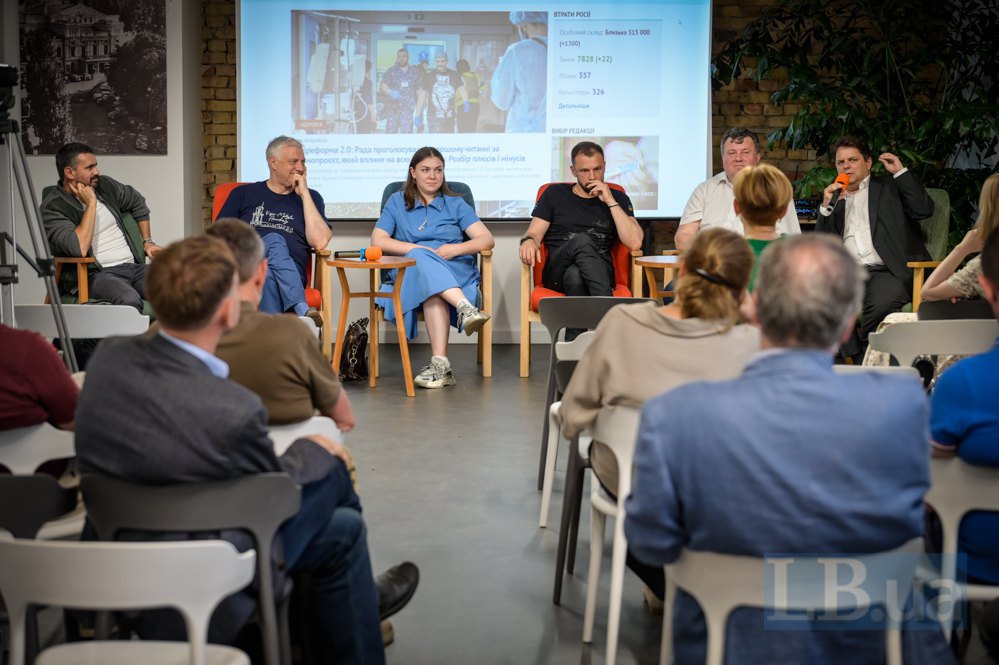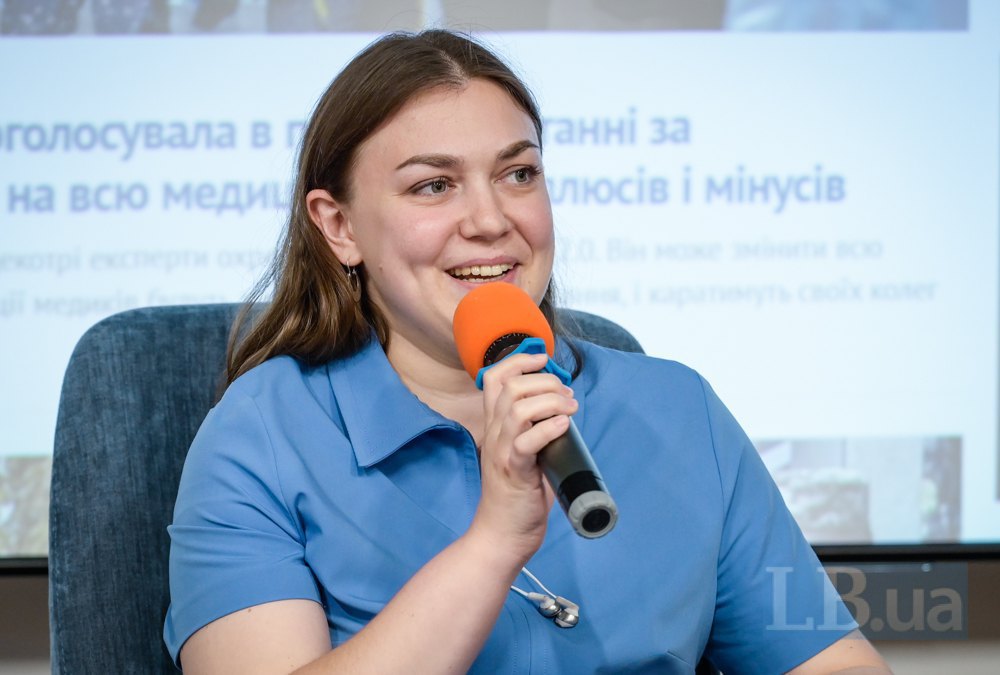
The world has long had an answer to ineffective university management - the corporate form, said Kseniya Semenova. It allows you not to wait for good and honest professionals to be at the helm of a higher education institution.
"In order not to reinvent the wheel, there is a corporate form of governance when there is a balance of branches of power. When the supervisory board can make decisions. These are not friends of the rector who are just politically reinforcing him. These are the people you are nervous about when you report to the supervisory board on an issue. This is what it looks like in the corporate sector. And this can be the case at universities," Semenova said.
According to her, the Ministry of Education and Science is preparing an experimental resolution on the corporate governance system. However, the problem is that, according to the acting rector of the National Academy of Sciences, this form of government cannot exist in state-funded institutions.
"Universities in Ukraine are not public institutions, they are state-funded institutions: a Soviet rudiment that does not exist anywhere else in the world. And all our European donors, American donors, all those who are forcing us to go to the Western world, to join the European Union, prescribe a corporate governance system in all their directives. There can be no corporate governance system in a state-funded institution. There may be a tariff scale, there may be an account in the Treasury. Okay, they allowed [educational institutions] to open a bank account. It turned out well. It's really a crutch. They should have allowed the special fund to be placed in a bank account, and the money provided by the state should have been placed in a treasury account. This is how it happens in state non-profit enterprises, in medical institutions, for example," Semenova said.
Another fundamental change in universities should be to build horizontal connections instead of the traditional vertical ones, she believes.
"I am also a student at the Kyiv School of Economics. During my year of study, there was not a single discipline where there was no group project. I know that in state universities (I also want to change this at the NAU) there is a situation when you are not obliged to communicate with your classmates during your studies. There is no interdisciplinarity. If there is no interdisciplinarity, if only your department teaches and you don't communicate with students from other faculties during your studies, only somewhere at Studvnesa or in a dormitory, you will not have this interdisciplinary skill, you will not have the project management skill.
If the university has a culture of vertical structure - primarily respect for elders, for those who are respected, this hierarchical story about medals, about honorary degrees - it is not about horizontal connections.
If we digest students in this culture of vertical cooperation, vertical work, they will never develop an understanding of horizontal connections," the acting rector explained.

What is already changing at NAU
The university is changing its attitude towards students, becoming student-oriented, said Kseniya Semenova.
"This is when you treat them as adults, not as children. Because very often universities treat students as children who cannot make their own choices, who cannot take responsibility for themselves, who need to be educated.
This is manifested in very specific things. We no longer have a vice-rector for educational work. We hired an HR director who used to work in public and private companies. It is now developing strategies for human capital development, which applies to both staff and students. This applies to students in terms of the career office, for example, when you can get the most accessible information in a civilised way about where to go for an internship, dual education, where to work," said the acting rector.

In addition, she added, there will be more internships at the NAU.
"Students should not study for four years and then go to the labour market. I want the paradigm of 'where do our graduates work' to change to 'where do our students work'. Because they work from the third year, some from the second, it's true. They can work in their speciality, work in defence-tech companies, they can assemble drones, they can work at Boeing Ukraine, they can work at Progresstech, and they can work at Rozetka.
This is probably also good for the country's economy. But we want our students to work in the specialities they study," emphasised Semenova.
"And when they work in the specialities they are studying, if it is software engineering or IT, a third-year student comes to university for classes and finds that they are not taught what they practice at work. This knowledge is not enough, it's not the same, it's outdated," she added, noting that this is why the NAU is changing and adapting its curricula.
"We cannot change all the several hundred study programmes at the university. NAU is 15,000 students, 3,000 teachers, 10 faculties, whatever you want. In addition to technical faculties, we have humanities faculties. We choose two or three study programmes that we will consider to be benchmarks, and for each we will have a main partner with whom we will rebuild this programme. The idea is that a student should not choose between entering Ihor Sikorskyy Kyiv Polytechnic Institute or the National Academy of Sciences, but between entering Ihor Sikorskyy Kyiv Polytechnic Institute or Boeing-Ukraine, for example. This is what it will look like for the university," said the acting rector.
Following the curriculum, the university is ready to change its teachers, "to retrain those who can be retrained, to thank those who cannot be retrained."
"Because an employer comes to a university, a normal rector tells them: give us your proposals for the programme. They give suggestions: this and that teacher is incompetent, they should not teach here. And then it turns out, how are we going to take away their hours, how are we going to fire them, we can't fire them, we can't reduce their hours, and in general, this is a very good teacher, let's not," explained Kseniya Semenova.
Then, she emphasises, IT companies go to open their own IT university. Defence enterprises are beginning to do the same. "But they don't have the people now. And this is an opportunity for universities. Companies don't have the people to open their own corporate universities, and we can train these people, they just can't do it on their own.
In addition, Kyiv Aviation University changes its approach to learning English - it will be taught more, not in groups, as it was divided after admission, but according to the level of knowledge. All students will be tested.
The university is also trying to support student developments and start-ups, the head of the university emphasised.
"Our team has been at the university for six months, and I've been acting rector for two months, but if a student wants to do a project, we give them an audience, buy a 3D printer and a soldering iron, give them as much as possible, send industry mentors, and actively cooperate with the technological forces of Ukraine. This is an alliance of all major defence industries that have production facilities at the NAU," said the head of the university.
"We are building NAU as a defence-tech university. It is one of the best technical universities in Eastern Europe. This is our goal for the university's centenary (we are now 90). And we are moving towards this. Now we have already invited, accommodated, and hosted many companies that work in defence technology, engineering companies that work with reconstruction. Many students are doing internships with them this summer. Many are doing projects together with our professors and scientists. And it will only get stronger. We want it to be a melting pot of engineering, technical and defence thoughts," said Kseniya Semenova.








